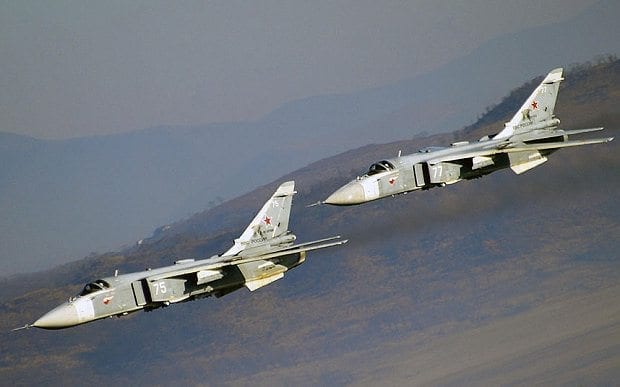Forum 18 News Service of Oslo, Norway, published a lengthy article by Dr. Mine Yildirim on March 25, 2020, explaining the Turkish government’s interference in the election of the Armenian Patriarch of Turkey, despite the ruling of the Constitutional Court that the government’s interference “was not prescribed by law and not necessary in a democratic society.”
Two Armenians of Istanbul, Levon Berj Kuzukoglu and Ohannes Garbis Balmumciyan, had initially filed a lawsuit with the Administrative Court on March 27, 2012. The Court rejected the lawsuit, stating that the Patriarchal election can only take place after the death or resignation of the Patriarch who was in a coma, even though the 1863 Ottoman-era regulations stated that the Armenian Patriarch’s election can take place in the case of “the death of the Patriarch, resignation and other.” The applicants appealed this decision, but the Court of Cassation rejected it on November 23, 2015.
The two Armenians then appealed to the Constitutional Court claiming that the state’s refusal of their request for the election of a new Patriarch violated their right to freedom of religion. The Court made its judgment in favor of the Armenians five years later in May 2019. However, the Turkish leaders ignored the Court’s decision. “While the judgment includes important findings related to the state’s unjustified interference in the internal affairs of the Armenian community, it also raises questions about whether the Constitutional Court is an effective domestic remedy or an actor that conveniently blocks applications to the European Court of Human Rights in Strasbourg, thus closing the door to international supervision,” Dr. Yildirim wrote. “The state had prevented the Armenian community from electing its religious leader between 2009, when the then Patriarch Mesrob Mutafyan could no longer perform his duties due to illness, and 2019, when the community finally elected Bishop Sahak Mashalyan as the new Patriarch.”
It is more than a coincidence that the Constitutional Court gave its verdict on May 22, 2019, following the state’s approval of the Patriarchal election after the March 8, 2019, passing away of Patriarch Mutafyan. The timing of the decision was intended to give the impression that the state was not interfering in the election of a new Patriarch and the Court was not telling the government what to do.
In its ruling, the Constitutional Court referred “to the 1863 Regulation for the Armenian Millet (ethno-religious community) and international legal provisions, including the European Court on Human Rights (ECHR) and the 1923 Lausanne Peace Treaty’s provisions on the protection of non-Muslims in Turkey,” according to Dr. Yildirim.
Throughout the existence of the Republic of Turkey, the government made some arbitrary changes during the 1950, 1961, 1990, 1998 and 2019 Patriarchal elections. “The election Directives were based on the Cabinet Decree of 18 September 1961 which had been issued only for that year’s Patriarchal election and which included no provisions for future elections. Despite this, the Interior Ministry has continued to use this Decree,” Dr. Yildirim wrote. The Interior Ministry’s submission to the Constitutional Court stated that the measures taken by the authorities derive from “the state’s positive obligation to organize the religious field.”
The Constitutional Court countered that argument by ruling that its verdict is based on Article 24 of the Turkish Constitution which protected religious freedom, Article 38 of the Lausanne Treaty which referred to the practice of religion, as well as the various rulings of the European Court of Human Rights. Furthermore, the Constitutional Court ruled that “the appointment of a Patriarchal Vicar-General (in 2010) occurred not as a result of a process that took place within the competing civilian and spiritual initiatives in the Armenian community, but as a result of ‘state pressure that was unconstitutional,’” according to Dr. Yildirim. “In conclusion, the Constitutional Court found that the state has not been able to demonstrate a pressing social need that overrides the ‘spirit of Armenian traditions’ and the ‘Armenian community’s will.’ Therefore the interference in the applicants’ right to freedom of religion or belief by way of refusing the request to hold Patriarchal elections cannot be considered compatible with the requirements of a democratic society, and Article 24 of the Constitution had thus been violated.”
However, even after the ruling of the Constitutional court, the state continued to interfere in the Patriarchal election. The Turkish Interior Ministry came up with a new restriction, ruling that only those Turkish Armenian bishops who were serving in Turkey at the time could be candidates for the Patriarchal election, thus reducing the number of eligible candidates to two. “This is 100% in contradiction to the Constitutional Court’s judgment,” said Sebu Aslangil, the lawyer in the case. Nevertheless, the Armenian Steering Committee for the Patriarchal election decided not to contest the Interior Ministry’s ruling in order not to further delay the election of a new Patriarch.
Dr. Yildirim concluded: “The judgment raised the profile of the Constitutional Court as a high court delivering a judgment in line with ECHR jurisprudence. Yet, due to its timing, the judgment had no impact on rectifying the injustice that the Armenian community experienced. It also closed the door for an application to be made to the ECHR in Strasbourg, thus blocking international supervision of the implementation of the judgment.”
In effect, as the legal axiom states, “Justice delayed is justice denied.”


